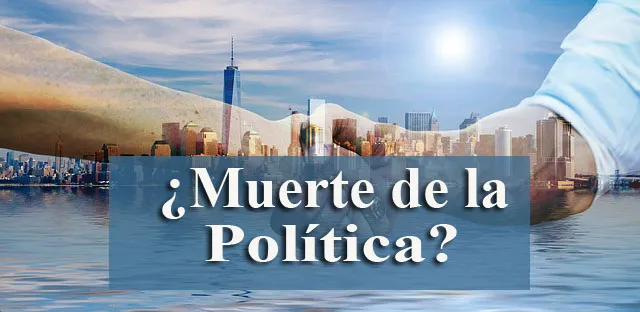
Saludos. Esta semana los amigos de @humanitas nos invitan a intercambiar ideas sobre la política, un tema que puede ser controversial. Les comento…
Ya en los tiempos más antiguos los seres humanos se enfrentaron al difícil problema de organizar la vida social. Este no fue un asunto que alguien eligiera por capricho, sino la necesidad impuesta por el crecimiento poblacional.
A medida que las poblaciones se fueron concentrando en ciudades hubo que resolver problemas de diferente índole, generándose la “Política” como el arte de dar respuestas a esas situaciones derivadas de la vida social. En sus orígenes ya la idea de la “Política” implicaba negociación entre diferentes sujetos.
Durante la mayor parte de la historia humana las sociedades fueron gobernadas de manera tiránica. Diferentes grupos se hacían con el poder y lo ejercían de forma ilimitada y arbitraria. La libertad era un concepto vacío, por lo que una idea como el Estado de Derecho era inimaginable. En todo ese tiempo, según mi modo de ver, no existió la “Política”, puesto que al sustituirse la negociación por la imposición la “Política” deja de tener sentido.
Fue en épocas muy recientes, a mediados del siglo XVIII, aquí en Occidente, cuando el movimiento llamado de “La Ilustración” sentó las bases para lo que sería otra forma de gobierno distinta a la tiranía, la Democracia Moderna de corte liberal, en la que la libertad es un valor fundamental. Con este nuevo enfoque se recuperó el contenido de la “Política”.
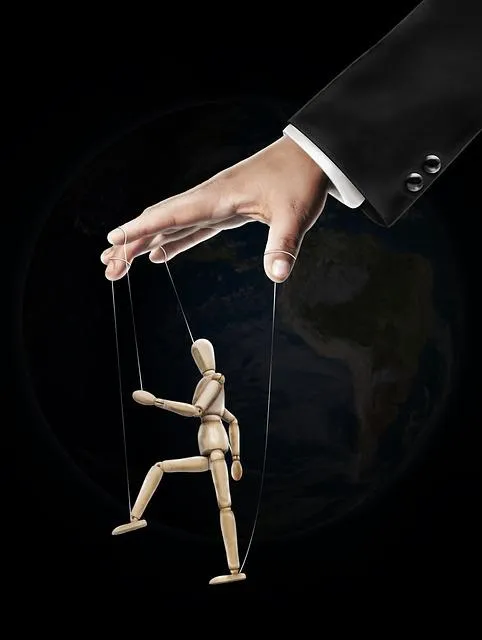
Pero las ideas democráticas no se asumieron inmediatamente. La mayor parte del mundo continuó siendo gobernada por tiranos de cualquier pelaje. No fue sino hasta la segunda mitad del siglo XX cuando la Democracia se instaló en un amplio grupo de países, conviviendo siempre con formas de gobierno autoritarias y dictatoriales.
Para esta segunda década del siglo XXI se mantiene la tensión entre Democracia y dictadura, el mundo no termina de asumir los valores democráticos como la base de sus organizaciones sociales. Más bien pareciera que ocurre lo contrario, que gana espacio la mentalidad dictatorial. La libertad pierda cada día más espacio.
Una pequeña muestra nos da idea del estado de la cuestión, el 68% de los países que constituyen el Consejo de Derechos Humanos de las Naciones Unidas está formado por países con formas de gobierno abiertamente dictatoriales. Muchos analistas son pesimistas sobre el futuro de la Democracia como forma de gobierno.
Los detractores de la Democracia suelen usar como argumentos para decretar su fracaso la pervivencia de problemas como las desigualdades sociales y la corrupción. Negar la existencia de ambas situaciones al interior de las democracias sería ponerse de espaldas a la realidad.
Sin embargo, hasta ahora no hay otro modelo político que ofrezca más garantías para las libertades ciudadanas. Con todas sus limitaciones y zonas oscuras, la Democracia sigue siendo la propuesta política donde hay más probabiliidades de establecer algún equilibrio entre los poderes y la oportunidad de extender la justicia social.
Nací en tiempos de dictadura, sin embargo, durante mi juventud tuve la oportunidad de vivir en una incipiente Democracia que se mantuvo casi durante cuarenta años. En los últimos veinte años me ha tocado vivir en una neo dictadura del siglo XXI, la revolución bolivariana. En mi balance los logros alcanzados por la Democracia fueron muy superiores. La dictadura chavista incrementó todos los males de la Democracia; problemas como la pobreza y la corrupción están completamente fuera de control, y se han perdido importantes espacios para ejercer las libertadas ciudadanas.
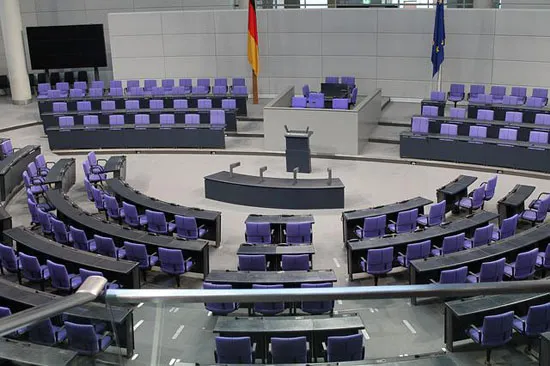
No tengo ninguna duda que la mejor forma de gobierno es la democrática. Solo en libertad las personas pueden desarrollarse plenamente, solo en libertad es posible encontrar salidas construidas por consensos.
Al irse extendiendo a nivel mundial las formas de gobiernos autoritarias y dictatoriales la “Política” se va desvaneciendo al interior de las sociedades. Es en la esfera internacional donde todavía se mantiene la idea de la negociación para tratar de evitar conflictos que escalen a situaciones de guerra. Parece que el futuro de la “Política” se reducirá a esas negociaciones entre los Estados.

La publicación de los amigos de @humanitas abre con una frase de Aristóteles: “El ser humano es un ser político.” En un mundo que avanza hacia la dictadura, seducido por engañosas propuestas de tipo populista, la frase del estagirita luce comprometida y gastada. ¿Cómo un “ser político” entrega su libertad y se acostumbra a vivir sin ella…?
El avance hacia las dictaduras se ha facilitado por la falta de compromiso de ese “ser político”. Las grandes mayorías se sienten anuladas, no encuentran el camino para construir políticas y aumenta el desencanto. La retirada de las mayorías a sus asuntos privados deja el camino libre a los y mandones y abusadores y la política se vuelve un espejismo.
Una gran pregunta es si podrá resurgir ese “ser político” que logre rescatar la vieja idea de la negociación, el futuro de la “Política” depende de ello.
Gracias por tu tiempo.
Fuente de las imágenes. I II III


Greetings. This week the friends of @humanitas invite us to exchange ideas about politics, a topic that can be controversial. Let me tell you...
Already in the most ancient times human beings faced the difficult problem of organizing social life. This was not a matter that someone chose on a whim, but a necessity imposed by population growth.
As populations became more concentrated in cities, problems of different kinds had to be solved, generating "Politics" as the art of providing answers to these situations derived from social life. In its origins, the idea of "Politics" already implied negotiation between different subjects.
During most of human history, societies were ruled in a tyrannical manner. Different groups seized power and exercised it in an unlimited and arbitrary way. Freedom was an empty concept, so an idea like the rule of law was unimaginable. During all that time, in my opinion, "Politics" did not exist, since when negotiation was replaced by imposition, "Politics" ceased to make sense.
It was in very recent times, in the middle of the 18th century, here in the West, when the so-called "Enlightenment" movement laid the foundations for what would be another form of government different from tyranny, Modern Democracy of a liberal nature, in which freedom is a fundamental value. With this new approach, the content of "Politics" was recovered.

But democratic ideas were not immediately adopted. Most of the world continued to be ruled by tyrants of all stripes. It was not until the second half of the 20th century that democracy was installed in a large group of countries, always coexisting with authoritarian and dictatorial forms of government.
For this second decade of the 21st century, the tension between Democracy and Dictatorship remains, the world has not yet assumed democratic values as the basis of its social organizations. Rather, it seems that the opposite is happening, that the dictatorial mentality is gaining ground. Freedom is losing more and more space every day.
A small sample gives us an idea of the state of affairs: 68% of the countries that make up the United Nations Human Rights Council are countries with openly dictatorial forms of government. Many analysts are pessimistic about the future of Democracy as a form of government.
The detractors of Democracy usually use as arguments to decree its failure the persistence of problems such as social inequalities and corruption. To deny the existence of both situations within democracies would be to turn one's back on reality.

However, so far there is no other political model that offers more guarantees for citizens' freedoms. With all its limitations and dark areas, Democracy continues to be the political proposal where there are more probabilities of establishing some balance between powers and the opportunity to extend social justice.
I was born in times of dictatorship, however, during my youth I had the opportunity to live in an incipient Democracy that lasted almost forty years. In the last twenty years I have had the opportunity to live in a neo dictatorship of the XXI century, the Bolivarian revolution. In my balance the achievements of Democracy were far superior. The Chavista dictatorship increased all the evils of Democracy; problems such as poverty and corruption are completely out of control, and important spaces for exercising citizens' freedoms have been lost.
I have no doubt that the best form of government is democratic. Only in freedom can people develop fully, only in freedom is it possible to find consensus-built solutions.
As authoritarian and dictatorial forms of government spread worldwide, "Politics" is fading within societies. It is in the international sphere where the idea of negotiation is still maintained to try to avoid conflicts that escalate into war situations. It seems that the future of "Politics" will be reduced to those negotiations between States.

The publication of the friends of @humanitas opens with a phrase from Aristotle: "The human being is a political being." In a world moving towards dictatorship, seduced by deceitful populist-type proposals, the Stagirite's phrase looks compromised and worn out. How does a "political being" surrender his freedom and get used to living without it...?
The advance towards dictatorships has been facilitated by the lack of commitment of this "political being". The great majorities feel annulled, they do not find the way to build policies and disenchantment increases. The withdrawal of the majorities to their private affairs leaves the way open to the bossy and abusive, and politics becomes a mirage.
A big question is if this "political being" will be able to resurface and rescue the old idea of negotiation, the future of "Politics" depends on it.
Thank you for your time.
Translated with www.DeepL.com/Translator (free version)

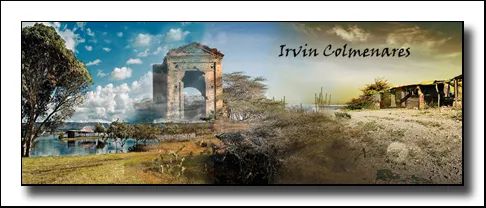


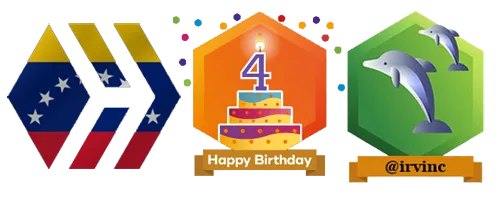

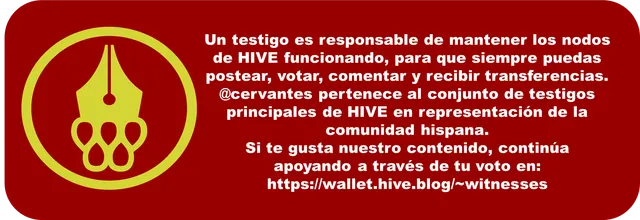
Te invito a apoyar este proyecto como witness y a formar parte de esta gran comunidad uniéndote a su Discord en el siguiente enlace:
Discord de la comunidad Cervantes

You can vote for @ocd-witness, with HiveSigner or on Hive Witnesses.


Banner obsequio de los amigos de @rutablockchain
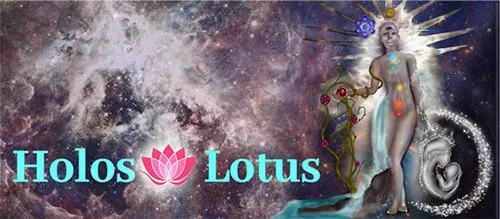



Banner obsequio de los amigos de @rutablockchain


